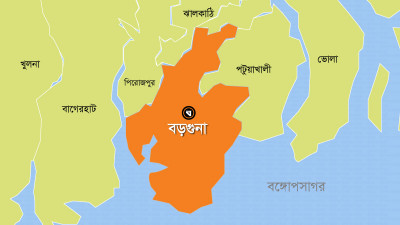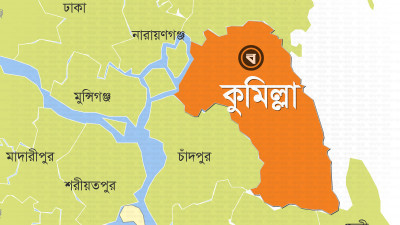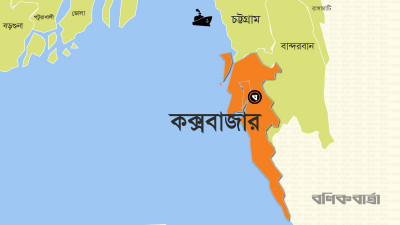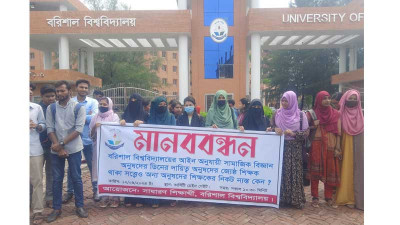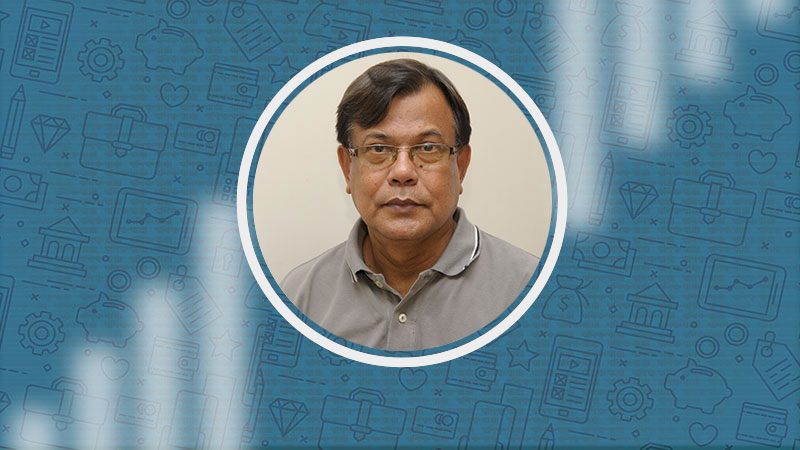 Photo: Bonik Barta
Photo: Bonik Barta I. Introduction:
Lies, Lies and More Lies
There is hardly any misgiving about the sequence of events during the ten days (roughly 12-21 July) that shook Bangladesh. No matter how many variants of lies and rumors float around, and no matter what conspiracies or misgovernance may have led to those events, return to a track of progress calls for confessions among misguided ones blinded by arrogance. In addition, there is a need to move towards purging the wrong-doers within the party in power, who enticed instability, either purposively or on account of cultural or organizational inertia. The July events and government responses exposed the poor quality of polity and power in the country. A few of the takeaways are,
(i) After
50+ years of Independence, the rhetoric around Muktijoddha (MJ) sounds too
hollow, even among those who take pride in their ancestors’ roles in securing
Bangladesh’s independence.
(ii) Hooliganism
and crude muscle power of a segment of loyalists, secured by providing
unregulated access to extortions to them, may have reached a limit (the AL
Secretary General’s frustration in ensuring workers on the street is worth
noting). And, most importantly,
(iii) Political
immaturity and poor acumen, as revealed in statements made by several key
individuals in leadership, were found to be incoherent, suggesting that the
party in power may be fragmented on several dimensions.
Thus, a lie is sought to cover up an uncalled-for action, that had to be followed by a series of bigger lies! Thanks to the students and the coordinators for keeping cool and raising the spirit to dream. The cost of lies and brutal aggression with high and unaccountable deaths and damaged properties is unacceptable. After such gruesomeness, can society simply go back to the old ways? Reflections from what has happened, redrawing violence with compassion and unity, the governance structure must be assessed.
Elsewhere (in a Kalbela interview and columns), I had argued why Awami League ought to transcend beyond the initial mobilization of social segments in the name of MJ. Such a move would require filtering out wrong-doers inside the party, many of whom often wash away their sins by claiming to be a MJ. I failed to understand why the supreme leader of the party failed to extend all supports to the quota reform movement at the right time! The observers often hint at blinded arrogance and a few even apprehend densifying incense for revenge lacking compassion for thousand others who may have gone through similar personal trauma. There is a third view that mentions of continuation of the empire with ‘pure blood’ inheritors. The latter aligns well with the currently observed fractures within, and with the choice of persons on whom the PM appears to put trust. Unfortunately, allegiance of many with Bangladeshi roots, in spite of being descendants of MJs, have undergone qualitative changes amidst dual citizenship and intense war of foreign interests on this land. Minus the probable presence of ego and vengeance attitude, many had expected the current PM as a stabilizer in the political space that could bring progress to the people of Bangladesh!
II. Need for Confession and humility
Commentators agree that the government needlessly exhibited brutal aggression, justified it in arrogance, causing further violence and deaths. It would be befitting to confess the government’s gross violations, provocative remarks, unleashing unaccountable cadres on students, law-enforcing armed forces, killing and injuring innocent students and passersby. It is important to acknowledge that the space for hooliganism that followed to destroy public properties, be those planned or spontaneous, were created by irresponsible acts of important persons in power. The present display of denial and passing the blame on relatively insignificant players, is paving the way for further regimentation of the society, jeopardizing the integrity of the country and reconstitution of the state.
One expects the party in power to make critical assessment of their acts and decisions so that the party can rectify and make the first reconciliatory move to the citizens of this country. Trust is of essence, and rebuilding trust calls for several steps, some of which are listed below.
(a)
An
open statement, from the Prime Minister regretting her unthoughtful remarks,
can be the first step. No matter how one tries to justify, the fact remains
that it reflected bad taste and had enticed the foul-players inside the administration
and Party, many of whom may have been keen to appease her authority, or, used
the opportunity to destabilize.
(b)
An
inquiry should be undertaken into the utterances of a Minister, who is also the
General Secretary of AL, claiming to do away with the odds using his cadres in
Students League, and openly making statement to “kill the miscreants”! Ideally,
it is important to clarify the Minister’s position for the benefits of the
citizens, including the parents of the students in protest. The public prosecutors
may also examine the possibilities of litigation against such deadly
utterances!
(c)
The
above applies to the Home Minister as well, who remains responsible for all the
misdeeds done by certain segments of the law-enforcing agencies. It is possible
that there has been infiltration into the ranks and files of these
organizations, which calls for scrutinizing all recruitments by an independent
commission with individuals having clear public records on honesty, integrity
and commitment to the people of Bangladesh.
(d)
Two
other persons in the cabinet who made visibly significant public statements are
the Law Minister and the deputy information minister. Both need to reflect on
their deceiving jugglery with words that failed to appreciate the severity of
the crisis. One is responsible for confusing the relative legal standings of
the executive and the judiciary, paying no heed to the importance of
legislature (the Parliament). The other, along with the ICT Minister, kept the
economy at dark for too long with an unconvincing story to explain prolong
internet darkness in this digital world. Worse still, attempts to defend the
armed attacks (on students) by suggesting that the protesters made the first
move by damaging public properties is a naked twisting of words hurting badly
the cause of the party in power. Ironically, no remorse was expressed for
stopping the economy by internet disconnection!
(e)
Specific
to the case under consideration, it is important for two other segments to
bring about changes in the ways the regulators and administrators serve the
stakeholders and the society – (i) judiciary and (ii) education, especially, university
administration that include syndicates, the Vice Chancellors and the Proctors. With
regards to the latter, the relevant Ministry should have had the maturity to
deal with security concerns, without jeopardizing education. Such choices,
based on specific loyalties, and not on professional abilities of individuals,
should be reviewed in all spheres.
If the PM and the loyalists in AL are able to read the pulses of the citizens of this country and are able to appreciate the need for nation-building, this is possibly a rare opportunity to embrace the new generation and engage them in nation-building.
While a separate paper will follow with an assessment of the governance structure and a proposal for reconstituting it at a higher level of social consciousness and compassion, this paper ends with a few observations on the Quota sytem.
Selected remarks on Quota System – an annex to the paper on disarray
It is important to distinguish between quota for rewards and quota for protective (or, affirmative) discrimination. When aggregate figures on quota are compared across countries and claims are made that Bangladesh is still at par with others, the commentators fail to make the distinction. With no attempt to elaborate, a few observations are tabled for consideration.
1.
Quota
for ethnic or religious minority may be considered protective discrimination
and justified upon continuous assessment of the state of discrimination.
2.
Quota
for women as well as disability, though are considered protective
discrimination, those run the risk of being biased towards the privileged
classes in the society. Thus, a second-tier check and balance may be necessary.
3.
Quota
for Muktijoddhas and their offspring is a reward (NOT a protective
discrimination), a few observations on which are noted below.
(a)
In
ideal settings, rewards work better to entice/encourage contributions when
declared ahead of an event where one’s performance is assessed for awarding
reward. ‘Muktijoddha’ reward is a post-event award, and therefore, cannot avoid
the generic vices associated with such rewards when sustained over several
years or generations.
(b)
Identification
of award-winners went through several rounds of changes making it an instrument
to buy loyalty. With market driven greed depleting the spirit of the award, an
interest group may have fermented in all government administrations which want
to perpetuate the (award) system and which tend to overlook all vices of group
members (such as, corruption, running prostitutions, etc.) that would otherwise
tarnish the morale basis of the group and its eventual breakdown.
I dare to
make the above statements because I am a son of a certified Muktijoddha
who had crossed the border, and I, like many others, had fought for
independence without crossing the border - treading through deadly barriers to
shelter the vulnerable in-country population, provide medicine and other
essentials to the urban guerillas, and by running schools during April-May 1971
when there was no directive for the freedom-aspirant people at large left to
open abuses by the Pakistan army and their supporters in the then East
Pakistan.
As a son of a certified Muktijoddha, I was approached to enroll for regular allowances, possibly in 2013-14, which had surprised me. Allowances on account of Muktijoddha ought to be for the needy ones, whose family earnings had been adversely affected by either loss or disability (including irreversible trauma) of a member (in the family) while fighting for independence. It was beyond my imagination as to why a proud FF or her/his unaffected progenies would seek alimony! During the 50 years after Independence, I have come across several varieties of MJs, including, those who (a) joined a camp across the border and never fought (there are several sub-varieties), (b) joined a camp, fought and returned alive; of whom some returned to normal life, some traumatized ones derailed, some made money (and grabbed others’ happiness) with the weapons they had, and some with newly acquired pride found it difficult to cope with dwindling moral standards in governance; (c) the martyrs who never returned from war field; (d) who remained in the country and participated in armed resistance, (e) who were in the country and actively acted as carriers of information, arms & ammunitions and had provided shelter and supports to the fighters as well as to common people. Beyond these groups, no one can deny the roles the large majority of the people played in providing moral and other supports to the cause of freedom. Given such a perspective, creating a special class of Muktijoddhas or justifying claims of all credit by a ‘certified’ segment surely deserves re-examination. The list of the privileged ones is already alleged to have been tarnished, making the ‘instrument’ a saleable item. Not only, there is no justification for passing the privilege to “Nati-puti” generation, one may assert further and call for scrutinizing government recruitments under MJ quota since 2014.
Dr. Sajjad Zohir: Executive Director of Economic Research Group (ERG)
[[email protected], prepared during 21-29 July 2024. The views expressed are author’s own, and do not necessarily represent the those of his associates in research.]

